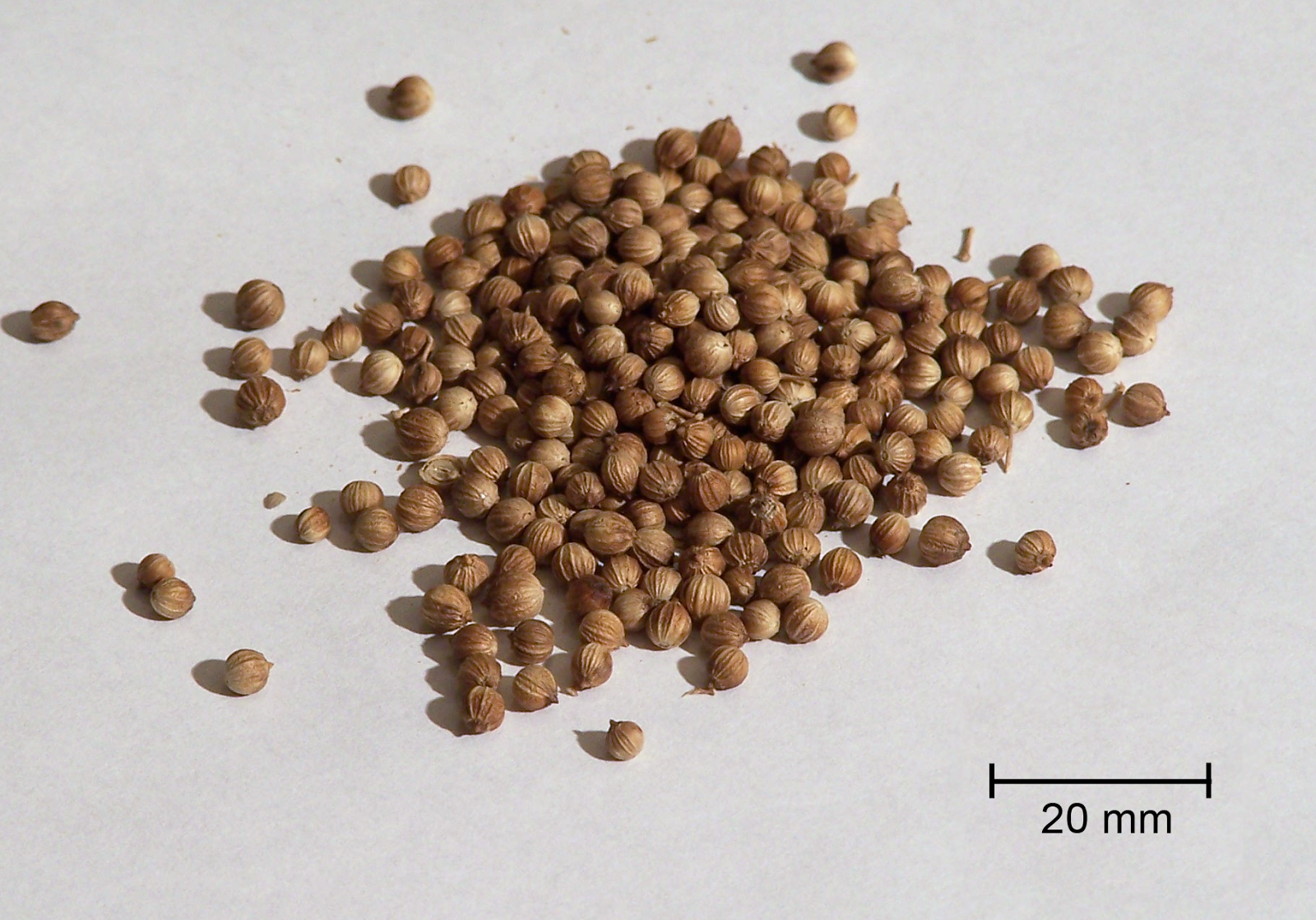The house of Israel named it manna, and it was like coriander seed, white, and its taste was like wafers with honey. Then Moses said, “This is what the Lord has commanded, ‘Let an omerful of it be kept throughout your generations, that they may see the bread that I fed you in the wilderness, when I brought you out of the land of Egypt.’” Moses said to Aaron, “Take a jar and put an omerful of manna in it, and place it before the Lord to be kept throughout your generations.” As the Lord commanded Moses, so Aaron placed it before the Testimony, to be kept. The sons of Israel ate the manna forty years, until they came to an inhabited land; they ate the manna until they came to the border of the land of Canaan. (Now an omer is a tenth of an ephah.)
The Israelites named their daily provision sent by God from
heaven for their physical nurturing “manna”.
The writer tells us it was white in color, like coriander seed in
appearance, and tasted like wafers dabbed in honey. Wikipedia gives us this picture of coriander
fruits:
Only of course it was all white in color.
And God also made arrangements for the Israelites to
remember His provision to them. He told
Moses that they were to keep an ‘omer’ of this manna forever. He wanted it as an exhibit to those that came
afterwards, so that this part of history – and especially the fact that it was
God who delivered them from slavery in Egypt and fed them daily in the
wilderness -- is always remembered.
To accomplish this, Moses told Aaron, his brother, to take a
jar, and fill it with manna. (In Hebrews
9:4 of the New Testament we are told it was a jar of gold.) As Christians today we have the opportunity to
have the “Bread of Heaven” of which this manna was only typical (John
6:32). I pray we treasure this Bread of
Life in the same way.
Aaron was to put one omerful of manna in the jar. Strong’s Lexicon tells us an omer is a dry measure of 1/10 of an ephah
(about 2 litres). Strong also defines an
ephah as a dry measure of quantity about 9 imperial gallons (which is 40
litres). There seems to be some
contradiction between the first definition of an omer (2 litres or 1/10 of an
ephah) and this definition of an ephah (40, rather than 20 litres). Rabbinical writings give sizes of one-half
this amount to comply with the definition of an omer. In any case, Aaron did just that and he
placed the jar, the text says, before the Testimony.
Matthew Henry translates the word “Testimony” here as simply
the ark. And this seems indeed to
support the meaning given to this account in Hebrews 9:4.
We note that this manna was provided for forty years right
up until the Israelites came to the land of Canaan. While God is outside time, and can do
anything by just uttering the appropriate command, we as His children need to
be mindful neither to be in a hurry nor to think He is being tardy. Remember when Jesus’ friend Lazarus died,
people felt Jesus was four days late going to see his body. But our Lord was right on time for what He wanted
to accomplish through that event. Both
He and us are in a relationship that takes time, as we know it, so that His
full plan for us to become more like Him will be fulfilled.
One of the greatest downfalls of many a leader is haste,
often manifested with just plain impatience.
God made the children of Israel wander in the desert for forty
years. But the good news is He was there
and He fed them daily.
Are you in the desert today because God wants you to learn
something or to develop a characteristic that will be useful for His glory in
the rest of your life? If so, make sure
you get your daily dose of Manna. Make
sure you are aware that God is there with you and He is providing for you. And then make sure to remember it years later
when you have reached your Canaan.
_____________________________________________________________________
[Are you
looking for a speaker at your church, your club, school, or organization? Ken
is available to preach, teach, challenge, and/or motivate. Please contact us.]
Thanks for dropping
by. Sign up to receive free updates. We bring you relevant information from all
sorts of sources. Subscribe for free to this blog or follow us by clicking on
the appropriate link in the right side bar. And please share this blog with your
friends. Ken Godevenos, Church and Management Consultant, Accord Consulting. And while you’re here, why not check out some
more of our recent blogs shown in the right hand column. Ken.
________________________________________________________________________
It would be great if you would share your thoughts or questions on this blog in the comments section below or on social media.
